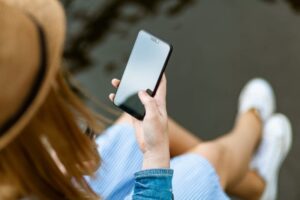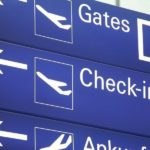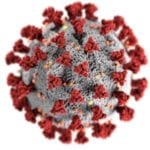As governments around the world consider easing lockdown restrictions, digital identity verification company Onfido is in talks with the U.K. government regarding its plans to issue COVID-19 immunity passports as a way of indicating whether a person is deemed safe to return to work.

Though supporters argue the scheme could help restart the economy, many health experts are concerned the plan is flawed due to the fact that there is still uncertainty regarding whether if someone who has recovered from the virus is in fact immune, and if so for how long.
“There is currently no evidence that people who have recovered from COVID-19 and have antibodies are protected from a second infection,” warned the World Health Organization in a post on its website last month.
Onfido hopes to solve this problem by tying the certificate to an individual’s digital identity, allowing it to be updated as new scientific findings about the virus emerge.
Onfido’s solution would work by having the user take a selfie as well as a picture of their valid government ID, and have a facial recognition system verify that the two match. Upon authentication, the user’s identity would then be linked to their official test result.
Upon arrival at their workplace they would take another selfie that unlocks a QR code in the app that would then be scanned by reception. If their test result says they are immune then they are allowed to enter the workplace, otherwise they are denied entry. The system could also be adjusted based on whatever new discoveries are made by the medical community.
“Let’s say in January, there’s a set of tests that are carried out, and then in February, it transpires that those tests were faulty,” Onfido CEO Husayn Kassai told TNW. “With a digital system, you can just make those void.”
Kassai’s proposal includes a ‘traffic light’ system that would reflect any changing views regarding the virus, where if new findings cast doubt on a green light for an individual’s passport it can be automatically changed to amber to show a new test is needed.
However, some critics of the system fear it could divide society between those who are free and those who are not, leading to new problems.
“If a test result is a requirement for a resumption of work, strategies to ‘game’ the system may arise,” warned The Scientific Pandemic Influenza group on Behaviors (SPI-B), an organization that advises the U.K. government on public responses to lockdown measures. “These include people deliberately seeking out infection or attempting to purchase a fake test result, commercial organizations selling unapproved tests, or approved tests becoming available through private organizations at prices that make them unavailable to most.”
Though Kassai calls this a “legitimate concern”, he still believes in immunity passports’ ability to benefit the public, so long as the data contained within them is secure.
On that front, Kassai said Onfido plans to ensure data security by storing each individual user’s account on its own private server, isolating them from one another in case of a data breach. Also, user accounts would only contain their photo and test results, with no other personal information collected.
“They only need to know the results and they only need to know that it belongs to you,” said Kassai. “They don’t need any of your other personal information.”
Source: TNW
–
May 12, 2020 – by Tony Bitzionis








Follow Us